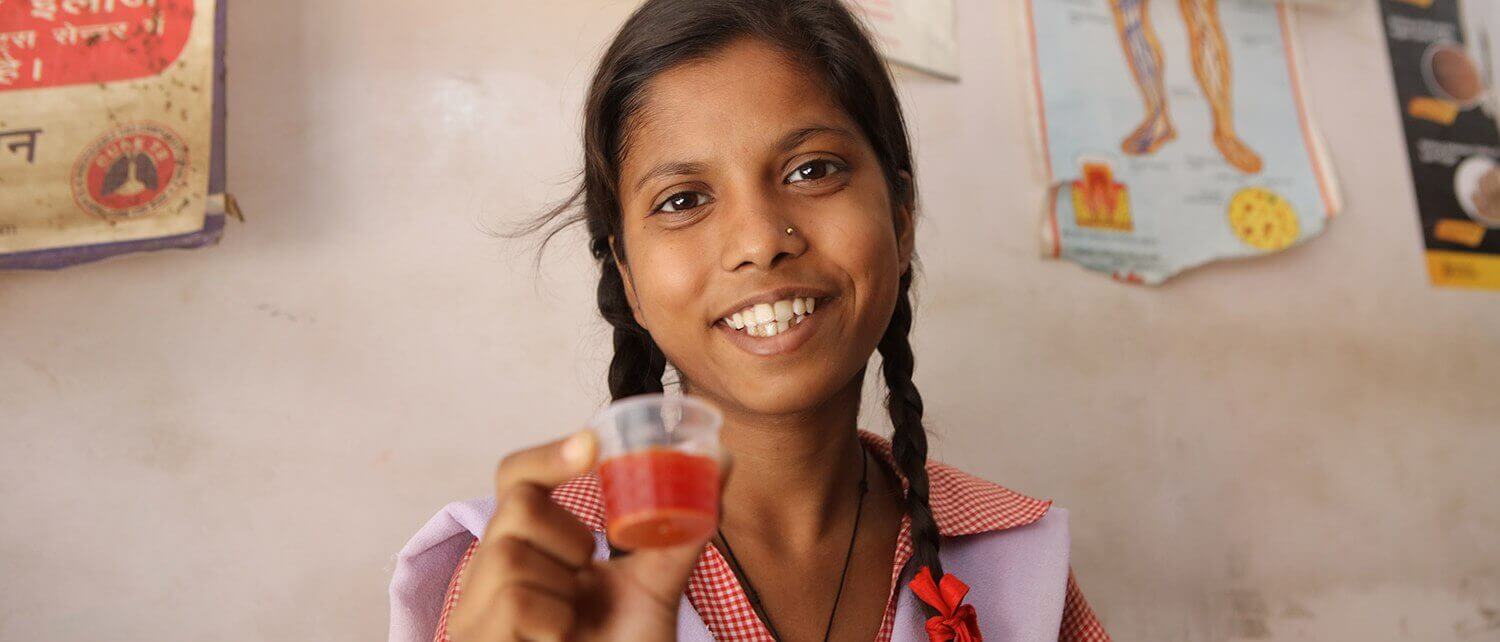Kat KelleyGHTC
Kat Kelly is a senior program assistant at GHTC who supports GHTC's communications and member engagement activities.

GHTC member TB Alliance announced last week the creation of the first-ever child-friendly tuberculosis (TB) medicines, which are currently undergoing regulatory review by the World Health Organization and should be available in early 2016. While TB is curable, a patient must take multiple drugs a day for six months, and existing medicines are not available in appropriate doses for children. Consequently, parents must crush or cut the pills. This arduous process—combined with the bitter taste—makes the six-month regimen difficult to follow. The new treatment is comprised of strawberry- and raspberry-flavored, child-friendly doses of the three most commonly used TB medicines. The new regimen is expected to significantly enhance adherence to treatment for the 1 million children diagnosed with TB each year.
Researchers at Texas A&M University have developed a device that, when attached to a smartphone, can diagnose malaria in minutes. Using a polarized light and the phone’s camera, the device serves as a microscope. The photos taken by the device are then analyzed by a software app that diagnoses infection by counting both red blood cells and Hemozoin crystals, which are produced by the malaria parasite. The device, which is expected to cost less than US$50 and be used with cartridges costing $1 each, will be tested in Rwanda next summer.
A preclinical study conducted by GHTC member Population Council in partnership with CONRAD suggests that candidate microbicide gel MZC could be even more effective against HIV than tenofovir gel, a leading microbicide candidate. Containing a potent antiretroviral, a zinc-based salt, and the compound carrageenan, the gel is intended to protect against HIV, human papillomavirus (HPV), and herpes simplex virus 2 (HSV-2). The study demonstrated that MZC was more potent than tenofovir against both HIV and HSV-2. While the study did not test the gel’s efficacy against HPV, existing research suggests that carrageenan is one of the most potent compounds against HPV. Next, MZC will be tested in delivery systems, including vaginal rings and rectal gels, as well as in combination with a hormonal contraceptive.
In other microbicide news, GHTC Member the International Partnership for Microbicides (IPM) has entered an agreement with pharmaceutical company Janssen Sciences that provides IPM the rights to develop a microbicide using the antiretroviral darunavir, which is currently available in pill form and marketed as PREZISTA®. IPM is also conducting a phase III clinical trial of a vaginal ring using antiretroviral dapirivine, licensed to the organization through a partnership with Janssen initiated in 2004.